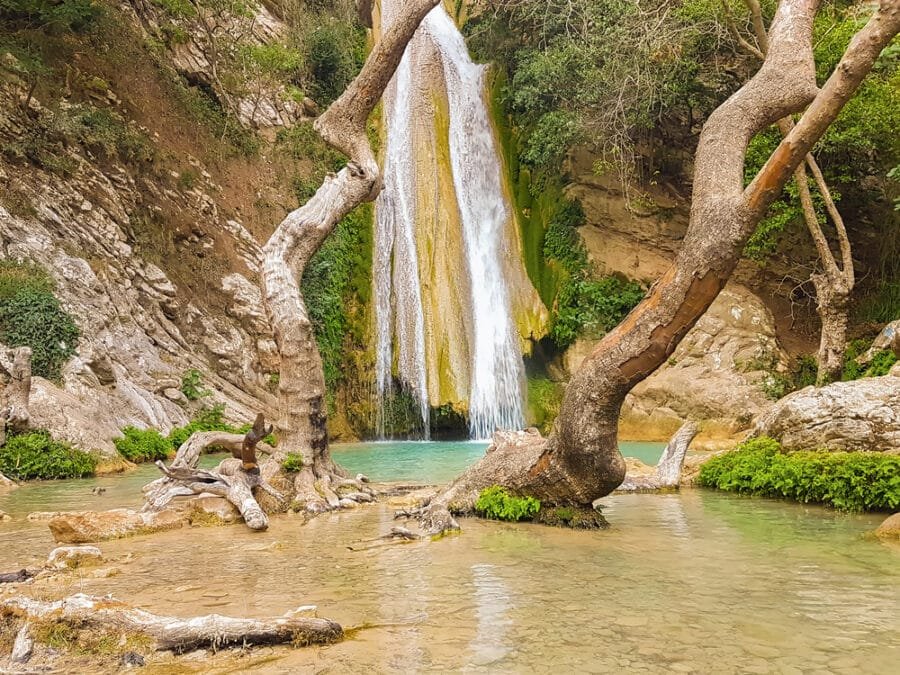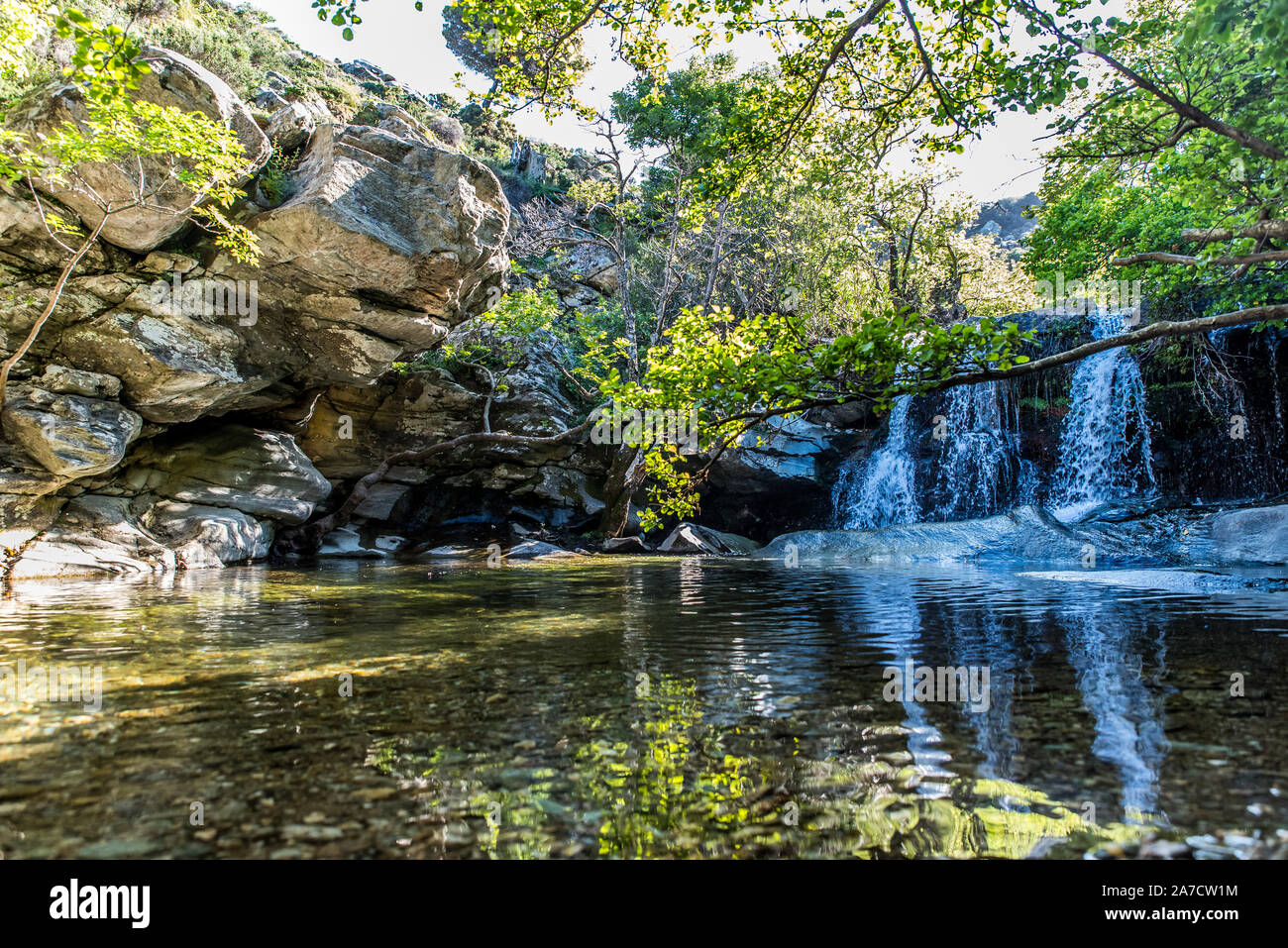“Why You Should Visit Greece’s Historic Waterfalls: A Journey Through Nature and Time
Related Articles Why You Should Visit Greece’s Historic Waterfalls: A Journey Through Nature and Time
- A Guide To The Most Unique National Parks In Canada
- A Guide To The Most Historic Villages In Canada
- Hidden Gems: Tranquil Villages You Must See In Germany
- Hidden Gems: Vibrant Castles You Must See In Argentina
- Why You Should Visit Egypt’s Amazing Landmarks
Introduction
We will be happy to explore interesting topics related to Why You Should Visit Greece’s Historic Waterfalls: A Journey Through Nature and Time. Let’s knit interesting information and provide new insights to readers.
Table of Content
Why You Should Visit Greece’s Historic Waterfalls: A Journey Through Nature and Time

Greece, a land synonymous with ancient mythology, sun-drenched islands, and iconic ruins, often overshadows another of its natural treasures: its stunning waterfalls. While many flock to the beaches and historical sites, the waterfalls of Greece offer a unique and refreshing perspective on the country’s beauty, blending natural splendor with whispers of history and legend.
Visiting these waterfalls is not just about witnessing cascading water; it’s about embarking on a journey through time, connecting with the raw power of nature, and discovering a side of Greece that remains largely unexplored. This article will delve into the reasons why you should include Greece’s historic waterfalls in your travel itinerary.
1. A Tapestry of Natural Beauty
Greece’s waterfalls are as diverse as its landscapes. From the towering cascades of Edessa to the secluded pools of Neda, each waterfall offers a distinct experience.
-
Edessa Waterfalls: These are perhaps the most famous waterfalls in Greece, located in the heart of the city of Edessa in Macedonia. The main waterfall, Karanos, plunges dramatically from a height of 70 meters, creating a mesmerizing spectacle. The surrounding park is beautifully landscaped, offering walking paths, viewpoints, and caves to explore behind the falls.
-
Neda Waterfalls: Nestled in the Peloponnese region, the Neda waterfalls are a hidden paradise. The Neda River, named after a nymph in Greek mythology, flows through a narrow gorge, creating a series of waterfalls and pools. Swimming in the cool, crystal-clear waters is a popular activity, and the surrounding forests provide a tranquil escape.
-
Skra Waterfalls (Blue Lake): Situated near Kilkis, Northern Greece, the Skra Waterfalls, also known as the Blue Lake, offer a unique and enchanting experience. The turquoise waters of the lake, fed by the waterfalls, create a stunning contrast with the surrounding greenery. It’s a perfect spot for nature lovers and photographers.
-
Livaditis Waterfall: Located in the Rodopi Mountains, this is one of the highest waterfalls in Greece. The journey to reach it is an adventure in itself, taking you through dense forests and rugged terrain. The reward is the sight of the cascading water plunging into a deep gorge.
-
Agios Nikolaos Waterfalls: Situated on the island of Samothrace, these waterfalls are part of a series of pools and cascades known as "Vathres." Each vathra offers a unique swimming experience, with waterfalls ranging from gentle streams to more powerful flows.
2. Echoes of History and Mythology
Many of Greece’s waterfalls are steeped in history and mythology, adding a layer of intrigue to their natural beauty.
-
Edessa’s Historical Significance: The city of Edessa, where the famous waterfalls are located, has a rich history dating back to ancient times. It was the first capital of the ancient kingdom of Macedon. The waterfalls themselves have been harnessed for power for centuries, with watermills once dotting the landscape.
-
Neda and the Nymphs: The Neda River and its waterfalls are named after a nymph who, according to Greek mythology, helped raise Zeus, the king of the gods. The river was considered sacred, and its waters were believed to have healing properties.
-
Legends of Samothrace: The island of Samothrace, home to the Agios Nikolaos waterfalls, was an important religious center in ancient times. The island was known for its Mysteries, secret religious rites dedicated to the Great Gods. The waterfalls and pools were likely used for purification rituals.
-
Watermills and Traditional Life: In many regions of Greece, waterfalls were essential for powering watermills, which were used to grind grain and produce flour. These watermills were vital to the local economy and way of life. Visiting these waterfalls often provides a glimpse into the traditional rural life of Greece.
3. A Sanctuary for Biodiversity
Greece’s waterfalls are not only visually stunning but also serve as vital ecosystems, supporting a rich array of plant and animal life.
-
Unique Flora and Fauna: The microclimates created by waterfalls support unique plant communities, including rare mosses, ferns, and wildflowers. The cool, moist air also provides a habitat for amphibians, reptiles, and various bird species.
-
Protecting Endangered Species: Some waterfall areas are home to endangered species, making their preservation crucial. Conservation efforts are underway to protect these fragile ecosystems from pollution and habitat destruction.
-
Importance of Water Resources: Waterfalls are a visible reminder of the importance of water resources. They highlight the need for sustainable water management practices to ensure the health of both the environment and local communities.
4. Adventure and Recreation
Visiting Greece’s waterfalls offers a range of opportunities for adventure and recreation.
-
Hiking and Trekking: Many waterfalls are accessible only by hiking trails, offering a chance to explore the surrounding landscapes. These trails range from easy walks to more challenging treks, catering to different fitness levels.
-
Swimming and Canyoning: Some waterfalls have natural pools that are perfect for swimming. Canyoning, which involves rappelling down waterfalls and navigating through gorges, is also becoming increasingly popular in Greece.
-
Photography and Nature Observation: Waterfalls provide stunning photo opportunities. Whether you’re a professional photographer or an amateur, you’ll be captivated by the beauty of the cascading water, the lush vegetation, and the dramatic landscapes.
-
Picnics and Relaxation: Many waterfall areas have picnic spots where you can relax and enjoy the scenery. Pack a lunch and spend a day surrounded by nature, listening to the soothing sounds of the water.
5. Escaping the Crowds
While Greece’s famous landmarks can be crowded, the waterfalls offer a chance to escape the tourist hordes and experience a more authentic side of the country.
-
Off-the-Beaten-Path Destinations: Many of Greece’s waterfalls are located in remote areas, away from the main tourist routes. This means you’ll often have the chance to enjoy the scenery in peace and quiet.
-
Connecting with Local Culture: Visiting waterfalls often involves traveling through small villages and interacting with local people. This provides an opportunity to learn about their traditions, customs, and way of life.
-
A Different Perspective on Greece: By exploring the waterfalls, you’ll gain a deeper appreciation for the natural beauty and diversity of Greece. You’ll see a side of the country that many tourists miss.
Planning Your Waterfall Adventure
-
Best Time to Visit: The best time to visit Greece’s waterfalls is during the spring or early summer when the water flow is at its peak due to melting snow and rainfall. The autumn months can also be a good time to visit, as the weather is still pleasant and the crowds are smaller.
-
What to Bring: When visiting waterfalls, it’s essential to wear appropriate footwear, such as hiking boots or sturdy shoes. Bring swimwear if you plan to swim, and pack sunscreen, a hat, and insect repellent.
-
Respect the Environment: When visiting waterfalls, it’s essential to respect the environment. Avoid littering, stay on marked trails, and be mindful of the local flora and fauna.
-
Safety Precautions: Be aware of the potential hazards when visiting waterfalls, such as slippery rocks and strong currents. Follow safety guidelines and never swim alone.
Conclusion
Greece’s historic waterfalls offer a unique and rewarding travel experience. They combine natural beauty, historical significance, and opportunities for adventure and recreation. Whether you’re a nature lover, a history buff, or simply looking for a peaceful escape, the waterfalls of Greece are sure to captivate your senses and leave you with lasting memories.
So, next time you plan a trip to Greece, venture beyond the beaches and ancient ruins. Discover the hidden waterfalls, listen to their ancient stories, and immerse yourself in the natural beauty of this remarkable land. You won’t be disappointed.



4 thoughts on “Why You Should Visit Greece’s Historic Waterfalls: A Journey Through Nature And Time”